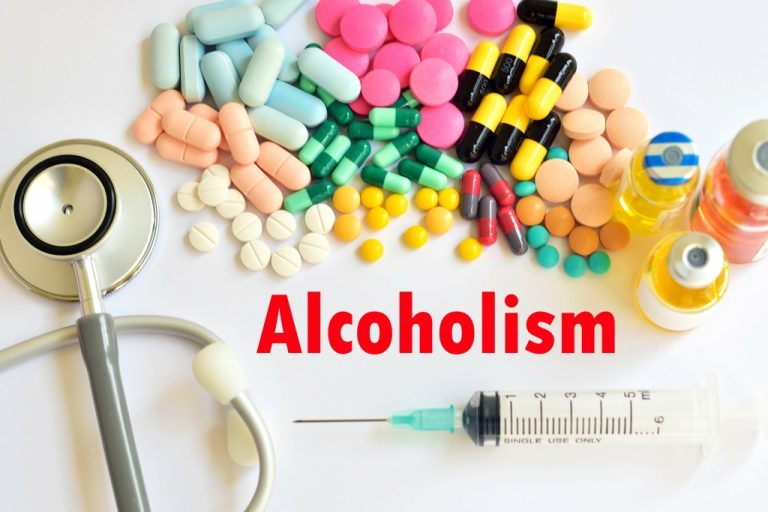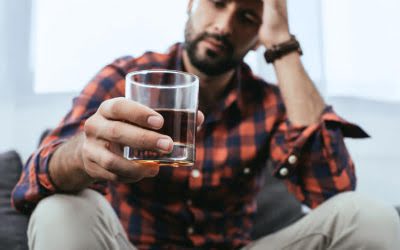When someone stops using drugs, the brain can gradually heal and regain functionality thanks to neuroplasticity. The brain’s ability to recover from drug abuse depends on different factors, like the type of drug used, the duration of use, the dosage, and other individual factors. While some damage caused by drug abuse can be reversible to a certain extent, it’s not always the case for everyone. In the months to come, Stanford researchers plan to further analyze the data they collected to understand how ibogaine seemingly works to repair brain functions. The findings, experts said, not only have implications for emerging psychedelic treatments, but they could also expand the use of ibogaine to treat other forms of cognitive decline, such as Alzheimer’s disease and other forms of dementia. In the past, doctors have used psychedelics to address individual health issues, using psilocybin, the compound in magic mushrooms, for depression or MDMA, or ecstasy, to treat PTSD.
You can start by contacting your local health department to learn about the options available. You can also contact community health clinics and non-profit organizations in your area and inquire about substance use disorder treatment. https://trading-market.org/alcoholic-narcissist-how-the-two-conditions-are/ The levels of care and treatment services you can expect at North Jersey Recovery Center include partial hospitalization (PHP), intensive outpatient (IOP), outpatient, sober living, intervention services, and dual diagnosis.
What are the Advantages of Inpatient Alcohol Addiction Treatment Programs?
Find treatment programs in your state that treat addiction and dependence on opioids. The confidential and anonymous resource for persons seeking treatment for mental and substance use disorders in the United States and its territories. The only way to know for certain how much inpatient treatment will cost you is by calling the admissions helpline at your desired rehab and speaking to an admissions specialist.

Faith-based facilities may also have different rules and guidelines than state-funded rehabs or private treatment centers. Local religious organizations may be able to provide information on finding or getting into a free faith-based rehab facility or how to get financial assistance for addiction treatment. Private and public insurance plans often include coverage for substance use disorder treatment, allowing you to obtain free alcohol rehab or free drug rehab. Exploring your insurance options can help you access a wider range of facilities and services and more personalized treatment options. To begin this process and to find these treatment options, a person dealing with drug or alcohol addiction can get in touch with their state or local mental/behavioral health or substance abuse services.
Advantages of Inpatient Rehab Facilities for Addiction Treatment
Faith-based rehab programs approach addiction treatment through the lens of various religious or spiritual beliefs. People who follow a certain belief system may feel more comfortable in an addiction rehab program that provides care that aligns with their personal beliefs. Keep in mind that if you have private or public insurance, you may be able to access free or low-cost treatment, as many insurance plans include coverage for substance use disorder treatment, making rehab more accessible for those seeking help. North Jersey Recovery Center is an alcohol and drug addiction treatment facility located in Fair Lawn, New Jersey.
Public drug rehab centers are open to everyone, regardless of financial situation, and may have long waiting lists. Private treatment facilities typically offer the highest level of care with the biggest variety of choices in care. Overall, the top drug rehab centers will provide comprehensive care in a specialized facility staffed by highly trained medical, mental health, and substance abuse providers.
Types of Outpatient Rehab
The dose was combined with an intravenous infusion of one gram of magnesium sulfate given before the pill, meant to address ibogaine’s risks in delaying normal electrical signals that control heart rhythm, which can result in death. The Stanford study observed no side effects from the treatment, although some reported headaches and nausea. In July 2022, Daniels booked a trip to Tijuana to become part of an experimental psychoactive treatment. He knew little about ibogaine, a psychedelic derived from the root bark of a plant from the African rainforest, and neither do many U.S. scientists. But he signed up for the treatment anyway, along with other combat veterans, compelled reports of its curative potential. AddictionResource aims to present the most accurate, trustworthy, and up-to-date medical content to our readers.

All of American Addiction Centers’ rehab facilities are equipped to handle most cases and population types. This list will highlight some of the specialized programs and treatments offered by each facility, but it does not mean the other facilities do not offer the same level of quality treatment. There are various types of low-cost rehab programs available for those who are looking for addiction treatment. SAMHSA’s mission is to lead public health and service delivery efforts that promote mental health, prevent substance misuse, and provide treatments and supports to foster recovery while ensuring equitable access and better outcomes. The decision to attend inpatient rehab is highly personal and may be best made after evaluation and guidance from a doctor or other treatment professional. Whether or not you need inpatient treatment depends upon several factors, and the appropriate type of care for one person may be different than another.
Multiple potential benefits, more study needed
In addition to reading, there are other ways to promote neuroplasticity and support recovery from drug abuse. Drug abuse effects on the brain can persist even after an individual stops using drugs, making recovery and rehabilitation a challenge. This latest research, along with other findings in psychedelic treatments, has drawn bipartisan support from lawmakers.
- He has a particular interest in psychopharmacology, nutritional psychiatry, and alternative treatment options involving particular vitamins, dietary supplements, and administering auricular acupuncture.
- Research into the disease of addiction is ongoing, and new approaches are continually being discovered.
Just before Christmas, President Joe Biden signed into law the updated National Defense Authorization Act. The nonprofit Veterans Exploring Treatment Solutions, or VETS, paid for the veterans to travel and independently schedule treatment at the Ambio Life Sciences clinic. They were given ibogaine pills based on their weight, with an average dose of just over a gram of ibogaine, given under the supervision of medical staff that Alcoholic Narcissist: How the Two Conditions Are Related included doctors, nurses and EMTs, the study said. The study followed 30 male special forces veterans from November 2021 to November 2022. All had a history of traumatic brain injury and had been exposed to repeated blasts that brought on subsequent psychiatric symptoms and disabilities. Twenty-three people in the study had PTSD, half met the criteria for having a major depressive disorder and 14 had an anxiety disorder.
Your ongoing feedback will help you and your care team understand what tools, therapies, and self-care techniques are helping you feel better, and decide on a path forward once you’ve achieved your treatment goals. MFTs are trained to diagnose and treat mental and emotional disorders, substance misuse, and addiction within the context of marriage, couples, and family relationships. Call your local mental health or addiction medicine department or reach out to your personal doctor. By using the form below, you can check if your health insurance provider may assist in covering the expenses related to rehab and therapies for addiction. Professional help provides not only the tools but also a network of support essential for overcoming the grip of addiction. Through therapy, you’ll explore underlying triggers, behaviors, and thought patterns contributing to substance use.